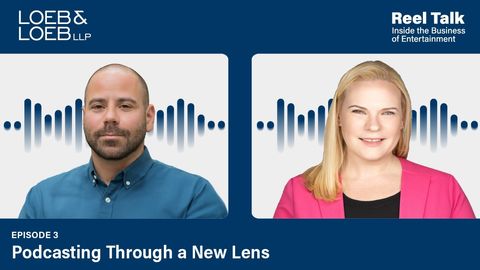A lawsuit between with two major celebrities on opposite sides doesn't come along very often, especially one that can give us insight into the negotiating and drafting of talent agreements.
In this case, Fitness franchisor F45 (Mark Wahlberg owns 36% of the company, is a board member and is Chief Brand officer) engaged David Beckham as an endorser via his loan-out company for $1.5 million/year for five years plus a significant amount of stock if F45 became publicly traded within one year of execution of the agreement. The endorsement agreement provided that the stock would be “procured by F45” and would be “freely transferable” … “from their time of issuance”. F45 did go public within the first year of the agreement and it did issue shares per the contract to Beckham's company. However, Beckham alleges that the shares provided by F45 were not freely transferable or tradeable. Unfortunately for all, F45’s stock dropped before Beckham could sell, causing the value of Beckham’s shares to lose an estimated $9.3 million.
This entire situation reminds me of a quote from Mark Zuckerberg, speaking about how the failure to handle the vesting of Facebook stock appropriately ultimately cost him billions of dollars:
“When Peter Thiel came in to invest one thing that he demanded was that all of the founders be on vesting schedules and I didn't even know what a vesting schedule was … and part of the early conflict I had with Eduardo [is that] … we kind of decided ‘Ok if we started a company we’d divide the equity up this way' … We hadn't heard of vesting schedules and then he just bounced [and] he never moved out to California with us … I mean it's like that mistake probably cost me billions of dollars.”
Concerning the Beckham-F45 case, F45 argued at both the federal and state court level that because the agreement states that F45 “shall procure the shares,” it somehow implied that the shares were to vest over time. Given that the agreement specifically states that “the shares shall be freely transferable … from the time of their issue,” both state and federal court judges have rejected the argument at the motion to dismiss stage.
Ultimately, if it is true that F45 intended for the shares to be awarded on a restricted basis that would vest for Beckham to sell over time, the agreement was poorly drafted. Certainly, I would not attempt to rely on an agreement governing potentially millions of dollars of stock on the word “procure” to mean that the shares would vest over time, and further, I wouldn't recommend including a statement that the shares are “freely transferable … from their time of issuance.” Instead, it would make more sense to specify that the shares would “vest over time according to the vesting schedule attached at Exhibit A," which would set forth the period in which each tranche of shares would vest.


/Passle/63ef8bdcf636e911c850090e/SearchServiceImages/2026-02-13-18-50-31-701-698f727799773b21433a7328.jpg)
/Passle/63ef8bdcf636e911c850090e/SearchServiceImages/2026-02-08-02-56-17-355-6987fb51644a11e11ab82944.jpg)
